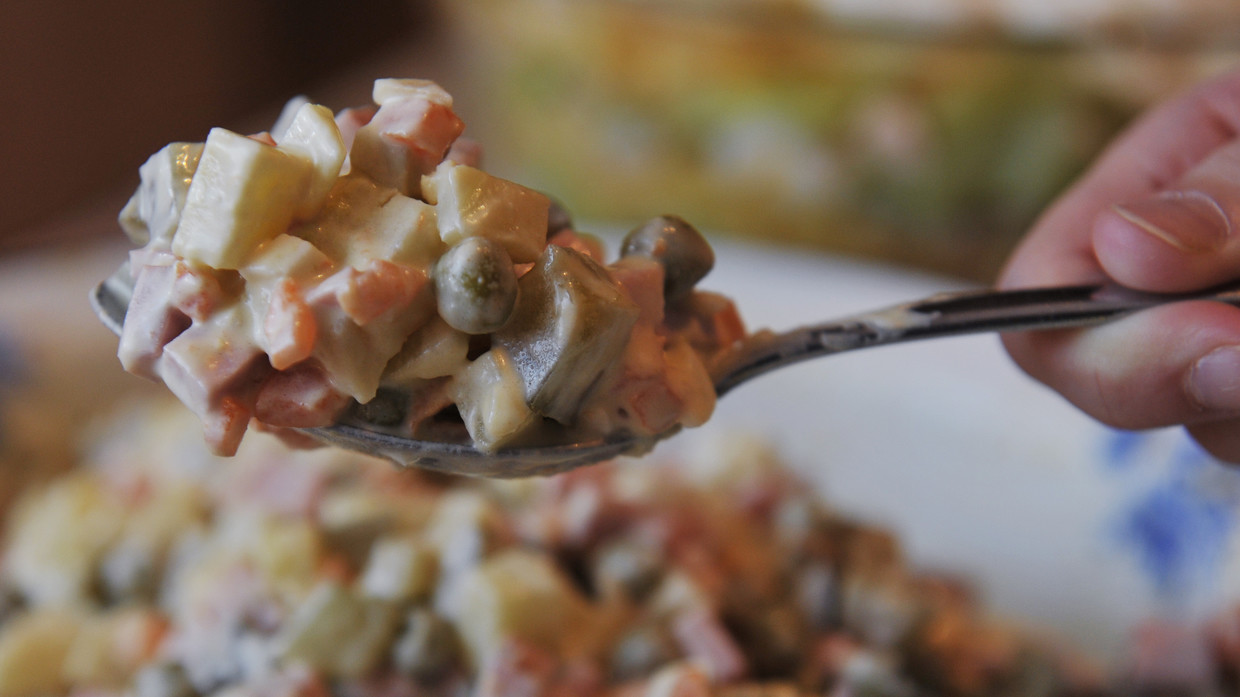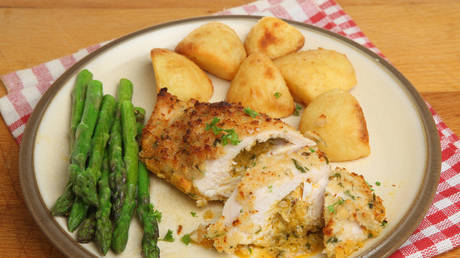Popular Olivier and Shuba salads, which are traditionally enjoyed during New Year celebrations in many former Soviet countries, should disappear from the tables of Ukrainians, Mayor of Dnepr Boris Filatov has said.
“To tell you the truth, I can’t gobble those Olivier and Shuba [salads] anymore because it’s the third day” of the new year already, he wrote on Telegram on Monday.
“Therefore, there is a proposal. Let’s gradually abandon those Soviet habits. And to be honest and frank: ‘Away with Moscow,’” Filatov added.
However, the mayor said he had no problem with another Russian dish – Kholodets or jellied meat – saying he would “give up his soul” for it, especially when it’s served with mustard.
The post, written in Ukrainian and apparently intended as a joke, made headlines in the Russian media. The mayor of the fourth-largest city in Ukraine responded to the coverage with a message in Russian, calling the journalists “dumb and without a sense of humor.”
“Furthermore, the jellied meat that we eat is made of Orthodox babies,” Filatov added in another apparent joke.
It’s believed that the original Olivier salad was invented in the 1860s by Lucien Olivier, a chef in one of Moscow’s top restaurants at that time, the Hermitage. It contained grouse, veal tongue, capers, caviar, and crayfish, along with other seasonal ingredients.
The original recipe has been changed and simplified over the years, however, and Olivier salad now consists of meat or sausage, potatoes, pickled cucumbers, peas, eggs and mayonnaise. The dish has become known worldwide and is commonly referred to as Russian salad.
Shuba salad is believed to have been first served in 1919 by a merchant called Anastas Bogomolov, who owned a chain of eateries in Moscow. It consists of layers of herring, onions, potatoes, carrots and beetroot, bound together with mayo. Bogomolov is said to have wanted to create a dish to unify people after the Bolshevik Revolution, and Suba was an acronym for “Chauvinism, Decadence, Boycott and Anathema.” However, some researchers dismiss this theory and believe the salad to have Scandinavian roots.
Some restaurants in Kiev had already removed the Russian dishes from their New Year’s Eve menus prior to the Dnepr mayor’s recommendation, media reported.
“We have to turn the page. What is happening in our country now affects our relationship with the world, and we have to be modern,” Tatyana Mitrofanova, who owns the popular eatery Chasing Two Hares, told AFP.


